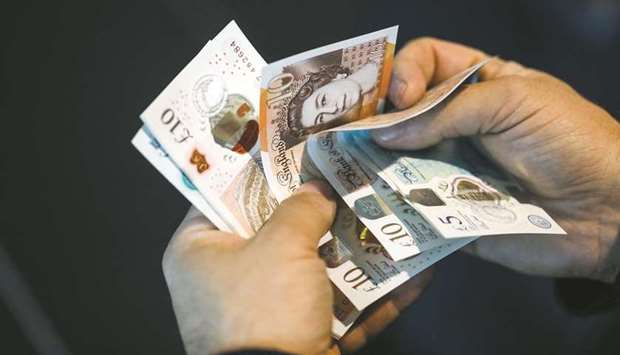The pound’s rally this month on growing optimism for a Brexit agreement may be ignoring a big risk: getting any deal through Parliament.
While analysts expect the currency to gain further if British lawmakers sign off on any divorce settlement, they foresee the script going awry if parliament doesn’t approve the deal. Prime Minister Theresa May could be sent back to the negotiating table with the European Union, be forced to hold a second referendum or even call a general election.
Any of those scenarios could spark a decline in the pound, making it attractive for BlueBay Asset Management LLP, one of Europe’s biggest money managers, to be selling the currency.
“Risk-reward favours short pound,” said Mark Dowding, a money manager at BlueBay, which manages $60bn. “We don’t see any deal having an easy passage through the Commons. Ultimately there is a good chance of a general election in the next six months, either before or after Brexit.”
Sterling has gained about 3% this month to above $1.31 and more than 1% to 87.24 pence per euro on a flurry of positive headlines about progress. May is said to be preparing to ask the Cabinet to approve a draft Brexit deal potentially within days, if she can overcome new resistance to her strategy from eurosceptic Tories.
A majority of MPs in the 650-member parliament have to vote in favour of a Brexit deal in order for it to pass through the Commons. This could be a challenge both because May doesn’t hold a majority and because either pro-Brexit or pro-Remain lawmakers could rebel. The opposition Labour party said on Tuesday that it would not vote for a Brexit deal keeping the UK in a customs union only temporarily.
If the deal is voted down, it makes the UK more likely to crash out of the EU without any agreement in March, said Rabobank’s head of currency strategy Jane Foley.
“We would expect the market consensus to shift towards a hard Brexit and for the pound to fall sharply with euro-sterling pushing up towards 0.95,” said Foley. “If a hard Brexit happened we could see euro-sterling rising towards parity.”
For now, some strategists advise selling the pound into rallies or buying volatility as the outcome of Brexit is still too difficult to predict. If Parliament rejects the deal that could lead to either a second vote – which may be sterling positive – or a no-deal Brexit, which would hurt the currency, according to Jeremy Stretch, head of Group-of-10 currency strategy at Canadian Imperial Bank of Commerce.
A rejection leading to another election and then a victory for Labour is the worst-case scenario for some investors, even though it might lead to a softer Brexit. Neuberger Berman Group money manager Steve Eisman is shorting two British banks on expectations Parliament rejects the deal and could short 50 UK stocks if he thinks Labour will win.
Investors in the options market expect the pound’s volatility to pick up, with the one-month gauge now at the highest since February. Even at the most expensive in eight months, a bet on volatility could see gains, according to Stretch.
“I still assume the deal will be agreed, but I suspect the vote will be a real knife-edge affair,” said Stretch. “At this point it’s worth remembering the mantra ‘nothing is agreed until everything is agreed’.”

Pound has gained about 3% this month to above $1.31 and more than 1% to 87.24 pence per euro on a flurry of positive headlines about progress
